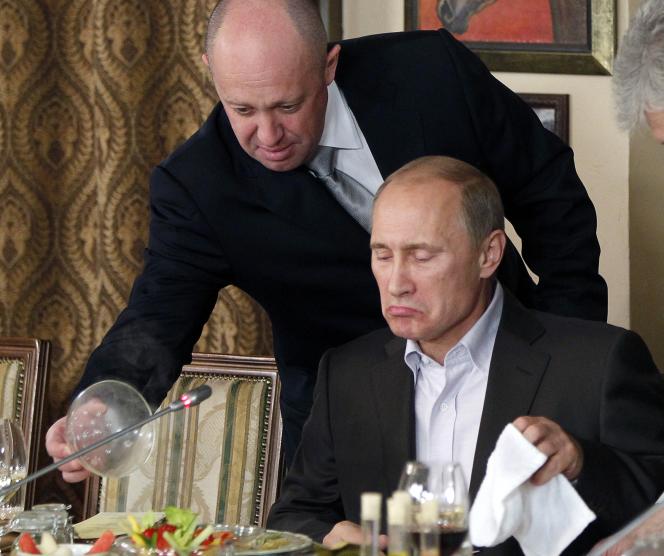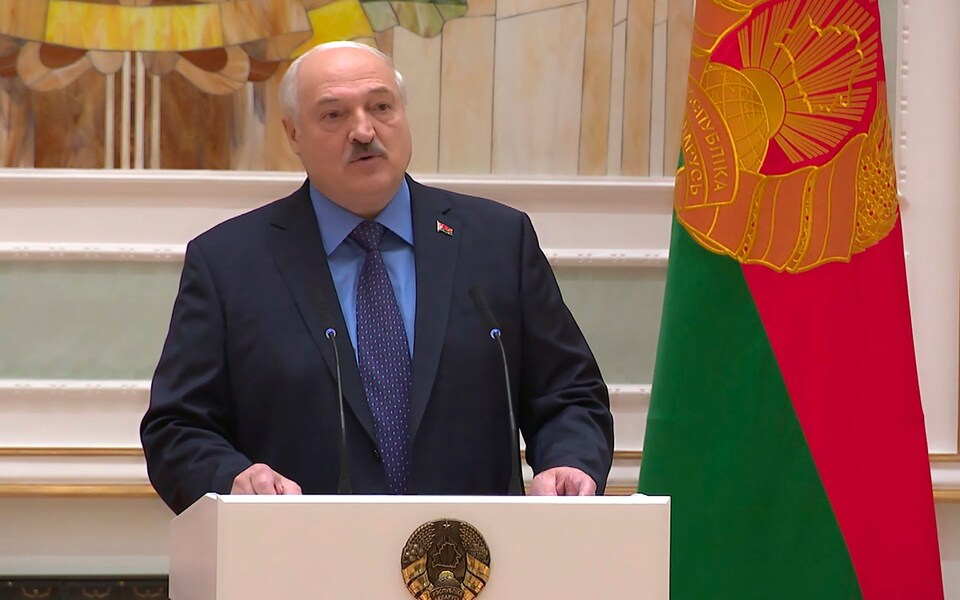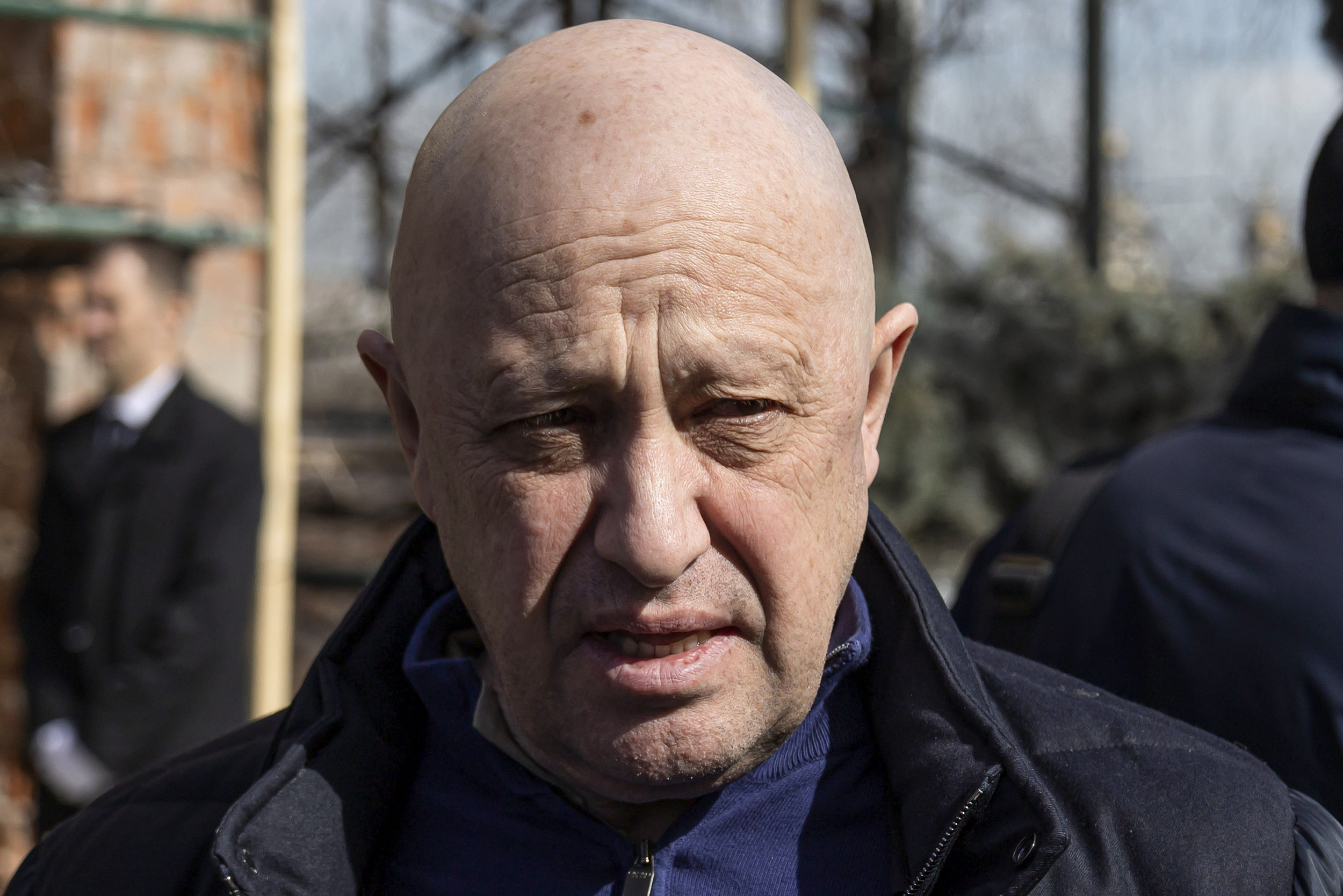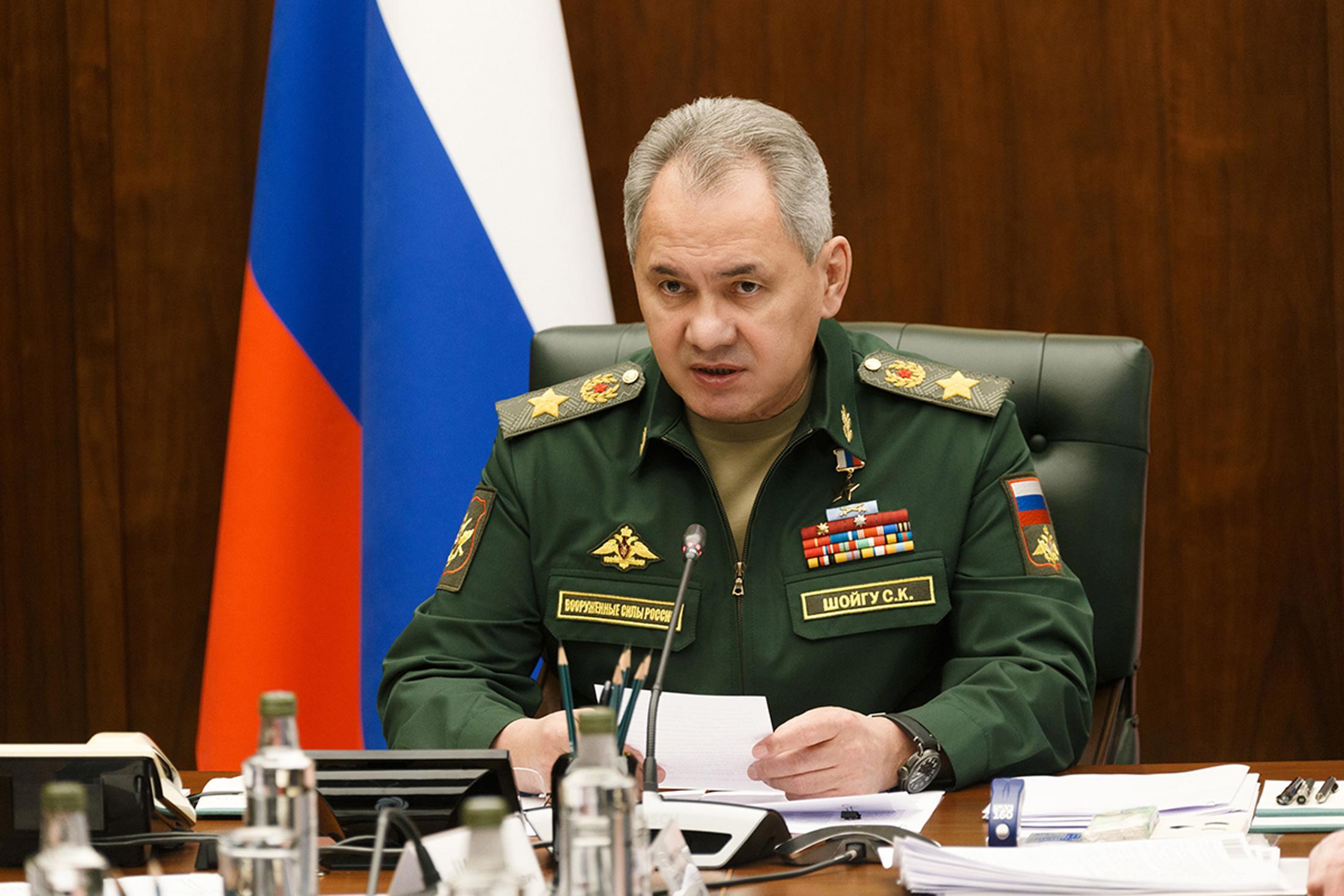Events in Russia took a dramatic turn over the weekend when it appeared that leader of Wagner Group, Yevgeny Prigozhin, marched on Moscow in a coup attempt.
War is a messy business and it’s seldom easy to understand what is fully going on. Bias is strong and reports in national press are generally not to be believed. The events of the weekend have given rise to all sorts of speculation.
Who are the Wagner Group?
They are a group of mercenary soldiers formed by Dmitry Utkim, a veteran of Chechnya. His call sign was Wagner, reflecting his interest in German nationalism. Founded going into the Syria war, the name became one that was applied to the whole unit. They are also affectionately known as the musicians.
Wagner have since then become a phenomena. In the age of TikTok videos they have gone viral showing breaking traitors legs with sledgehammers, for example. They have sent hammers to Western politicians as PR stunts. They even have merchandise.
Utkim is their military commander and is surrounded by a cadre of highly experienced ex special forces commanders. Prigozhin is more like the CEO. He has become famous as the units PR guy and political liaison.
Prigozhin is known to be an intimate friend of Putin and has got extremely wealthy off of Putin’s coat tails. He owns a few media outlets in Russia and is thought to have political ambitions. Following events of last weekend he is certainly tipped as a key political figure to watch.

Vladimir Putin (seated) and Yevgeny Prigozhin in Moscow, on November 11, 2011. AP
It should though be noted that Prigozhin's political values are ultra right wing and reactionary. He is anti-homophobic and is a Russian chauvinist. He stands for a programme of complete militarisation.
The use of Wagner PMC in the Ukraine War has been a very profitable enterprise for Prigozhin, who used the conflict not only to line his own pockets but to build his own power base and project his image through an army of hired bloggers and telegram group ‘military analysts’. This led him to come into conflict with the army leadership, especially the Minister of Defence Shoigu.
No room for criticism or discussion
The Western media, much of which has been reporting Ukrainian talking points with no critical concern, has fueled deep anti-Russian sentiment. The hatred and disgusting rhetoric on display has pushed some into the complete opposite position. Keen to distance themselves they go on to become too pro-Russian.
This viscousness on both sides creates a situation where nobody can admit anything has gone wrong or badly. It is often said that war is politics by other means and understanding the political perspective is really important.
The Western media are reporting this event as if it shows Putin is losing grip, that this will seriously undermine the war effort and that Putin’s days are numbered. On the other side, god help you if you dare criticise the Kremlin.
It is likely the case that some commentators in the alternative news environment are paid by governments but it is also an easy insult if you disagree with someone’s analysis of the situation. Most people have their own agendas/opinions/bias which is why you should always seek out a range of views. Comparing one Western news outlet to another – like Al Jazeera to the Guardian – does not qualify.
It is worth making the point that many commentators on the West do not speak Russian so their comprehension of primary sources could be compromised. AI translators for example are not always accurate or nuanced.
Special Military Operation (SMO)
A case in point is the use of the above term.
It’s simply not allowed in Russia to refer to the war as anything else. It is a signifying word when used by commentators as to where their allegiances lie. On the other hand using terms like war and invasion are considered to reveal a pro-Western alliance.
Perhaps the truth lies somewhere in between? I think there is a strong argument to be made that Russia initially entered this conflict – sending a small force to the outskirts of Kiev – in order to precipitate a coup and instal a pro-Russian (or neutral) leader. There is evidence a secret peace treaty was signed. Russian withdrew, but then the British PM at the time, Boris Johnson, flew into Kiev and persuaded Ukraine to throw the peace treaty in the bin.
NATO had spent the last 8 years of the civil war building up and training Ukrainian forces with a long term aim of destabilising Russia – which fits in with the US State Department’s coup back in February 2014.
Russia was caught out and hastily assembled troops in the Donbass region, where they claimed to have uncovered documents showing the Ukraine government were planning a major offensive into Donetsk.
The Russians were seriously outmanned. They sent seamen, pilots and even lawyers doing their necessary service to the frontline. Initially Russia lost a lot of their officers. It was under these circumstances that Russia found themselves having to rely increasingly on mercenaries.
Rising Tensions
The conflict that has arisen during the course of the war has been between Prigozhin and the Minister of Defence Sergei Shoigu. Both being driven by large egos and prone to a confrontational style.
For months there had been tensions, with allegations by the Wagner chief in February that his troops were not given enough ammunition and other supplies to carry out the war.

“War is a racket” Smedly Butler quote
On both sides corruption has been much in evidence. It appears that Prigozhin refused to pay the bribes to Shoigu that were conditional on receiving the full amount of ammunition required.
It is worth noting that Shoigu holds the reputation as the most corrupt man in Russia, so that’s really saying something! Like all the oligarchs he’s a gangster. He comes from a powerful and politically connected family. He actually pre-dates Putin.
There was also a constant conflict over who should take credit for advances in the front, particularly in the long battle for Bakhmut in which Wagner’s mercenaries (many recruited from Russian jails) played a key role.
Following this Prigozhin started to air dirty laundry. His PR campaign highlighted Russian soldiers being killed in Bakhmut. This was naturally picked up by Western media outlets leading to a misleading understanding in the West as to the extent of Ukrainian losses.
Pressure was being applied to Wagner to take Bakhmut and following victory (largely accredited to Wagner units) they began to pull out to rest and recoup.
Once the battle for Bakhmut was over, the army leadership thought it was the right time to move against Wagner. A decision was made that all Wagner operatives who wanted to continue fighting in Ukraine were to sign individual contracts with the Ministry of Defence. That spelled the end for Prigozhin’s lucrative business in this particular war, but also represented a serious setback to the political ambitions he had developed. He declared that none of his men were going to sign such contracts.
Allegedly as the units were withdrawing they were ambushed by the 22nd brigade. Something Prigozhin referred to as “A shot across our bow”. Vague rumours had already been circulating that Prigozhin may move on Moscow.
Putin, who until that point had been balancing between Shoigu and Prigozhin, in a typical Bonapartist fashion, publicly backed this decision in a big blow to his mercenary oligarch friend. One thing a Bonaparte cannot allow is anyone with ambitions undermining his own power.
Prigozhin now had only two options: abide by the demand and see the end of Wagner’s participation in the Ukraine War, or defy the decision with a show of strength and try to get a better deal from Putin.
Belgorod
In June a group of soldiers sent by Ukraine, who have at this point already been bombing the Russian city, shot people then retreated. An event not covered by media on either side of the conflict.
Local people are angry as hell and felt they have been ignored and not given the hep needed. This prompted Prigozhin to move troops to Belgorod. However, this move caused alarm bells to ring as the city is less than 400 miles from Moscow.
Prigozhin spent his time going round to units getting pledges of support for him – including non-Wagner units. Preparations for a coup became openly active.
24 Hours from Moscow
(as in parody of the song title 24 hours from Tulsa!)

The Telegraph Newspaper
In the early hours of Saturday 24 June, Prigozhin’s forces had taken several key military buildings in Rostov, including the headquarters of the army’s Southern Military District and the airfield, without firing a shot. In a video posted on Telegram, Prigozhin was seen at the headquarters, talking to Deputy Defence Minister Yevkurov and Deputy Chief of the General Staff of the Russian Federation Alekseev.
In another video, posted at 7.30am, Prigozhin demanded that Defense Minister Shoigu and Chief of the Russian General Staff Gerasimov be "handed over" to him, otherwise he threatened to "go to Moscow."
By 10am, Putin made a televised speech:
Actions that split our unity are a stab in the back of our country and our people...and our actions to defend the fatherland from such a threat will be brutal… Those who prepared the military mutiny, who raised weapons against combat brothers, have betrayed Russia, and will pay for this.
At the same time as leaving no-one in any doubt as to his position, he was also appealing to the ranks of Wagner by describing them as;
heroes who liberated Soledar and Artemivsk, towns and cities of the Donbass. They fought and were giving lives to Novorossiya and the unity of the Russian world. Their name and glory were also betrayed by those who are trying to organise the mutiny.
Having thrown down the gauntlet and been rebuffed by Putin, Prigozhin had no other alternative than to desperately launch himself into an adventure. He was probably calculating – or at least hoping – that he had wider support amongst the ranks of the army, amongst officers in high ranking positions and generally within the structure of the state and political power.
His column of a few thousand heavily armed men advanced quickly in the direction of Moscow during the day. Rather than strengthening their positions in the towns and cities they passed, they seemed to be on a mad dash to reach Moscow before the Russian army had time to organise the defence and stop them.
In this move on Moscow many big names remained silent. This includes the head of RT, who was apparently on holiday at the time! The silence is indicative that political insiders were sitting on the fence waiting to see how events played out.
Can Prigozhin’s actions be compared to what Russia hoped to achieve outside Kiev early on in the war. That is apply political pressure to connected insiders in hope of causing a coup, not to overthrow his friend Putin but to have Shoigu replaced?
The Financial Times’ Max Seddon quotes someone he describes as having “known the warlord since the early 1990s” to speculate about Prigozhin’s aims:
I don’t think he had anything particular in mind. He just decided to go and convince Putin that he should get to keep all the money they took away from him… Then the situation got completely out of control. At some point he realised he didn’t know what to do next. You get to Moscow, and then what? You open the doors of a dozen prisons, some unimaginable freaks come out, the country goes to shit, and then you get to the Kremlin... and you don’t know what to do.
The only resistance Prigozhin faced was an attack from the airforce, which Wagner repelled, downing several attack helicopters. By the end of the afternoon, Wagner’s column had reached Elets, in the Lipetsk region, just 250 miles from the capital Moscow. Speed and surprise had been on their side up until that point.
This can be explained because the military leadership did not want to redirect any forces from and therefore weaken the front, in case the Ukrainian army attempted to take advantage of the situation. And also because the poorly armed and less experienced conscripts along the road to Moscow were not in any mood to face up to a heavily armed column of battle-hardened mercenaries.
By the end of the day, however, Chechen troops had arrived and were surrounding Rostov-on-Don, and military defences had been erected at the entrances to Moscow.
Lukashenko saves the Day

President Alexander Lukashenko
In yet another sudden twist at 8.30pm Belarussian media announced that a deal had been brokered by President Lukashenko, and Prigozhin announced that “having reached a point where there was going to be bloodshed”, his forces were turning back, away from the capital.
Rumours that Lukashenko had fled to Turkey were proved absolute rubbish.
The terms of the agreement, as announced by presidential spokesperson Peskov, mean that Wagner mercenaries that had not participated in the armed rebellion would be allowed to sign up for the army in Ukraine, while those who had participated would not be prosecuted on “account of their military merit”. Moreover, a criminal investigation against Prigozhin was going to be dropped and he would be offered safe passage to Belarus. By 11pm, Wagner’s forces and Prigozhin himself left Rostov-on-Don.
In effect, the original intention, which was to remove Wagner from the Ukrainian war, or at least to subordinate it to the Army command, had been achieved and the armed rebellion diffused with hardly any loss of life. Prigozhin had no other alternative other than to accept this deal. He had not managed to rally any support for his bid and he was aware that he had no chance of actually winning in an open military conflict with the army, even if he managed to reach Moscow. He had at least saved his life and perhaps been offered the possibility of keeping his assets and Wagner’s lucrative operations in Africa.
However, on the morning of Monday, 26 June, Russian media reported that;
the criminal case on organising an armed rebellion, the main defendant of which is Prigozhin, has not been terminated and continues to be investigated by an investigator from the investigative department of the FSB.
So we shall have to wait and see how this continues to play out.
Putin
How has Putin dealt with this. In one word terribly.
Putin is not some sort of dictator or king. He is at best a mediator between the different rival Oligarchs holding Russia together. This entire affair has left him seeming soft and incompetent. He was forced to side against his friend because the governing ideology in Russia is stability above all. This imparts a certain rigidity of system, one could say ossification. New comers are not welcome – they get shipped off to fight in Africa!
Putin was unable to negotiate a way out of this. Whilst many in the West cheered this attempted coup on, it is worth baring in mind that as the Financial Times editorial commented:
The weekend’s unrest serves as a reminder, too, that if Putin is ever toppled, it could be by more hardline elements determined to prosecute the war in Ukraine in still more vicious fashion.
Whilst it is foolish not to see the negatives this war has had for Russia. Unacknowledged defeats, serious loss of life, isolated from Europe and SWIFT, Finland joining NATO and gas pipelines blown up. It is also foolish to believe the hype that this has spelled the end of Putin, an imminent collapse of Russia’s war efforts in Ukraine, and so on.
War is messy and sometimes we need to wait for the dust to settle to take a full account of what has transpired. I think what is safe to conclude is that there are dangers inherent in relying too much on mercenary groupings to do your fighting for you.




Prigozhin was deceived. They threw it like a fool. When he realized this, he agreed to the chance that Putin offered him. Exit to Belarus.
Those who used Prigozhin failed to stage a coup! Russia will win!
I am not sure if this is significant, but "I read this somewhere":
Wagner is not your usual mercenary group, but (like french foreign legion to France), wagner soldiers swear an oath to Russia.
That's true and may in part explain why Wagner has high degree of support from Russians. This includes the Veteran Socieety who have been scathing about the MOD's conduct of the campaign so far.
My previous @v4vapp proposal has expired. I have a new one which is running but unfunded right now. I'm still running @v4vapp and all my other services.
I've just updated v4v.app and I'm getting ready for some exciting new features after the next hard fork.
Please consider asking your friends to vote for prop #265 or consider unvoting the return vote.
For understandable reasons in the current crypto climate it is harder to get funded by the DHF, I accept this so I'm asking a wider audience for help again. I'll also add that I power up Hive every day and usually power up larger amounts on 1st of the Month. I'm on Hive for ideological reasons much more than for only economic benefit.
Additionally you can also help with a vote for Brianoflondon's Witness using KeyChain or HiveSigner
If you have used v4v.app I'd really like to hear your feedback, and if you haven't I'd be happy to hear why or whether there are other things you want it to do.
I didn't know much about Wagner or Prigozhin before this stunt. However, the bizarre nature of it made my thinker itch, so I spent a few days studying up. Initially I thought Putin and Prigozhin had cooked up a 'pre-coup' that would enable Prigozhin to take the reins from Putin when he retires, which I expect he will do before he gets assassinated (as always comes to dictators that overstay their rule after their edge begins to dull). Putin's not a fool, and knows his edge is dulling. He's well beyond his prime, and that lots of hungry younger competitors seek his seat.
But that didn't really make sense either, because the time to pass the crown was while Prigozhin had the momentum from the growing support he'd generated, and that didn't happen. I realized that Prigozhin has no interest in ruling Russia. He only wants to rule Wagner. I realized this only when I learned Shoygu had determined to forcibly incorporate Wagner into the MoD.
Putin and Prigozhin are bosom buddies. Putin gave Prigozhin Wagner safely out of the reach of Shoygu by this ruse. There are clearly other candidates for the Presidency than Prigozhin, some who want it enough to spend years in Russian prison for it, like Navalny. I don't know if Shoygu has realized how close he came to getting terminated with a sledgehammer, but when the VDV and other forces refused to tackle Wagner and let them march on Moscow, he must have pissed himself with fear.
He got enough of the Wagner veterans to spread their expertise across the MoD forces, which they desperately needed, but didn't get to take Wagner out, which Shoygu clearly wanted to do. Putin was confident in Prigozhin not having any interest in the throne, but Shoygu had no such trust, and Wagner's rapid growth to ~50k elite troops not only made him very nervous politically, it showed up his own lack of capability to create such an elite force very, very blatantly and often.
Putin sacrificed some face to save Wagner from Shoygu for his buddy Prigozhin, but has more than enough to not be significantly risking political comeuppance. Anyone else that thinks they can stand up to Putin will quite quickly learn they aren't Prigozhin. He'll still have to deal with succession later, but probably not too much later, and he can count on Prigozhin till the day he dies.
Thanks!
Edit: there's been a lot of speculation and talk about Putin losing face, but he's got ~90% favorable rating from Russia. Shoygu, not so much. The failure of the MoD personnel to war on Wagner, and worse, some of the MoD joining Wagner's march on Moscow, is a vote of no confidence in Shoygu, not Putin. He's hanging by a thread right now, and he's got a myriad of subordinates considering a go at him.
My thinking was some way along your own lines. You get the feeling there is much we don't know about behind the scenes however we can only really gauge this for now with what is publicly visible.
Great to see a detailed description and analysis of this on Hive.
I found the best analysis here: https://bigserge.substack.com/p/russo-ukrainian-war-the-wagner-uprising?utm_source=profile&utm_medium=reader2
I tend to agree that this was never a coup attempt.
The Russian MoD tried to shut Wagner down, effectively nationalising Prigozhin's very lucrative business and undermining its independence.
Prigozhin would not take this lying down and tried to get a better deal by mutinying and hoping he would get some institutional support.
But no one in power supported him and many of his own Wagner troops didn't want to be part of it.
The lesson of all of this is the dangers of relying on mercenaries (as Sun Tzu warns), but as you note, they were essential in the first 15 months of the war before Russia properly mobilised for war.
The MoD strategy of integrating Wagner troops into the normal military structures was the right one but was implemented in a way that left the option open for Prigozhin to do what he did.
Thank you very much for your comment. The link you provide is excellent. I like how it goes into detail examining the possibility of the event being some sort of Psyop which I don't cover in my article. Well worth a read cheers.
Congratulations @saltycat! You have completed the following achievement on the Hive blockchain And have been rewarded with New badge(s)
Your next target is to reach 17000 upvotes.
You can view your badges on your board and compare yourself to others in the Ranking
If you no longer want to receive notifications, reply to this comment with the word
STOPCheck out our last posts: